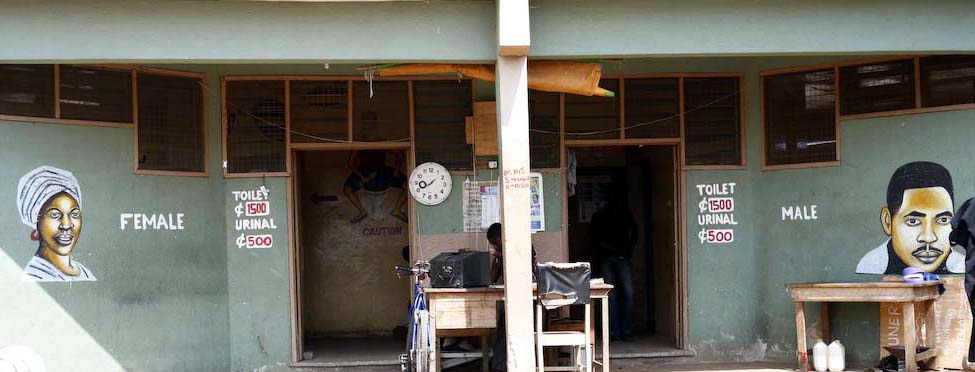The financial cost for men and women using this Accra WC are listed as 500 Ghana cedis (about 3 Euro cents) to use the urinal and 1500 cedis for use of the toilet. For males the distinction and act associated with either standing or sitting are clear. But given the uniformity of posture and the level of privacy how does the toilet attendant know whether a woman is merely saying she needs to pee to qualify for the lower rate? For any given service – to what extent can the usage of that service be accurately tracked? What is an acceptable level of tracking from a moral, legal, cultural and in this instance practical stand point?
Fast forward to a future perfect world of where, for the sake of efficiency public services such as WCs are tracked, analysed in real time, access to those services is authenticated through pseudo-anonymous identities, and where payment is driven by subscription or per use. Could this world exist? To some extent it already does in neighbourhoods with limited or no sewage such as Dharavi – where the queues in the morning are local residents using public facilities.
Going back to the question of whether it is always possible to differentiate service pricing based on gender – what are the cultural or contextual exceptions? In Iran where sitting and squatting are the government mandated positions of choice – so that you won’t (or are unlikely to) find a urinal in a male toilet. Or to flip it, the occasional use of female urinals in large public events like the Glastonbury festival.
Update: Reader Ethan kindly clarifies the following: “If you’re “paying your water bill”, you won’t be given toilet paper, whereas you will if you are “making a deposit”. The paper is carefully cut squares of newsprint, often from Chinese newspapers. Why Chinese? I have no idea, but there are corners of Makola market where the newspaper is sold in bundles, or precut into squares for this purpose.”
